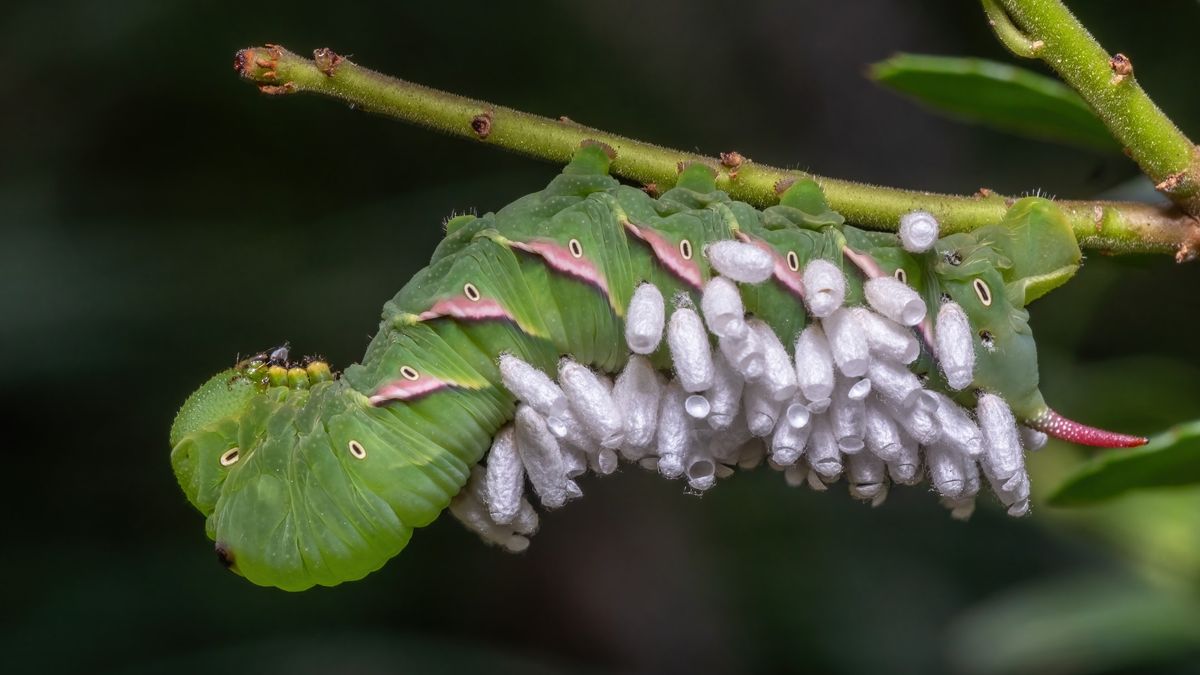Now Reading: Unveiling Insect Zombification: A Skin-Crawling Reality Explored by Mindy Weisberger
-
01
Unveiling Insect Zombification: A Skin-Crawling Reality Explored by Mindy Weisberger
Unveiling Insect Zombification: A Skin-Crawling Reality Explored by Mindy Weisberger

Quick Summary:
- Parasitic wasps use caterpillars as hosts for their larvae. The larvae grow inside the caterpillar, later bursting through its skin to spin cocoons on its back.
- Mindy Weisberger’s book Rise of the Zombie Bugs explores parasitism and mind-control in insects, showcasing how parasites manipulate host behavior in gruesome ways.
- ichneumonid and Braconid wasps are common examples of such behavior manipulation. These relationships unsettled even Charles Darwin.
- Jewel wasps paralyze cockroaches by stinging specific brain regions and lead them back to burrows to be used as live food for their offspring.
- Fungal parasites like Ophiocordyceps unilateralis alter ant behavior,causing infected ants to isolate themselves,die on leaves,and release spores-an evolutionary adaptation spanning tens of millions of years.
- Another fungus, Massospora cicadina, infects periodical cicadas using amphetamines to induce hypersexualized behaviors that spread spores among cicadas while destroying parts of their exoskeletons.
- In mammals/humans: Rabies alters aggression; Toxoplasma gondii, primarily found in rodents but occasionally humans, manipulates risk-related behaviors potentially linked with complex human traits like aggression or nurturing.
Read More: Link
Indian Opinion Analysis:
The phenomena described in Weisberger’s work provide valuable insights into ecological complexity and the adaptation strategies parasites have evolved over millions of years. While most examples pertain primarily to regions outside India,such as North America or Europe (e.g., Brood XIV cicadas), parallels may exist within India’s rich biodiversity.
India is home to numerous insect species susceptible to parasitism-making research into behavioral manipulation vital for understanding local ecosystems’ balance. A deeper study into India’s insect-host-parasite dynamics could inform ecological management practices for agriculture or pest control strategies.
For Indian researchers leveraging advancements in neuroscience or biochemistry from global studies on parasite-induced behavioral changes (e.g., neurochemical influence), cross-species comparisons could uncover domestic implications relevant across biodiversity hotspots like Western Ghats or Indo-Gangetic plains.Neutral observations also highlight that harmonious coexistence rather than overexploitation underpins ecosystem sustainability-a notion critical for emerging conservation efforts within India’s climate-challenged landscapes.


























